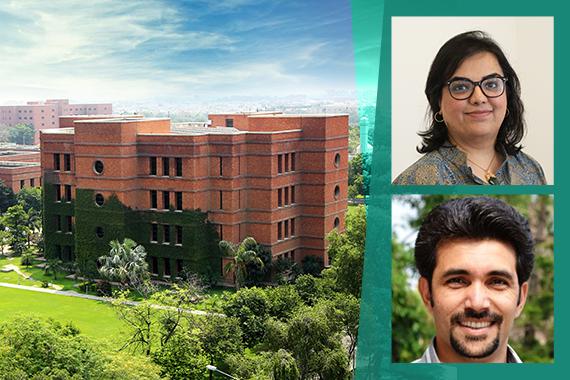
LUMS School of Education has recently added to its already impressive portfolio of faculty for its upcoming batch of students. The profiles of the new faculty members are given below:
Dr. Rabea Malik
Assistant Professor
DPhil Education Policy, University of Cambridge, UK
Dr. Rabea Malik’s substantive interests lie in the areas of sociology of education and the political economy of educational reforms in the low-income country contexts. Her work explores the role of home and school contexts on access and achievement of children in schools, and policies in ensuring equal opportunities for marginalised children. She employs statistical, sociological and ethnographic (mixed) methods in her work. For the past three years, Dr. Malik has been studying various education reform initiatives in Punjab and Sindh, including public-private partnership mechanisms (PSSP in Punjab, and the EMO model in Sindh), inclusive education pilots, and school-based management initiatives, including changes to financial and administrative autonomy available to school heads. Dr. Malik is a Research Fellow at the Institute of Development and Economic Alternatives (IDEAS), and has advised Ilm Ideas, DAI Europe, and the Project Management Implementation Unit, Punjab. She is the country co-I in Pakistan for Teaching Effectively All Children (TEACh), and is also part of the country team for Research on Improving Systems of Education (RISE).
Dr. Malik has a DPhil in education policy from University of Cambridge, a Masters in International Development from University of Sussex, and a Bachelors (Hons) in Economics from Lahore University of Management Sciences (LUMS).
Dr. Qaisar Khan
Assistant Professor
PhD Development Policy, KDI School of Public Policy and Management, South Korea
Dr. Qaisar Khan is serving as an Assistant Professor-Tenure Track in School of Education, LUMS. Previously, he taught basic economics as a lecturer and microeconomics, development economics and research methods as teaching fellow at KDI School of Public Policy and Management, South Korea. He has also worked as a research fellow in the project titled “International study of learning in higher education” a joint collaboration of KDI School and Stanford University. Besides, he has over seven years of work experience in managing and implementing development projects with various national and international organisations in Pakistan.
Dr. Khan obtained his PhD in Development Policy from KDI School of Public Policy and Management, South Korea, and a Masters in Development Policy with majors in Public Finance and Social Policy from the same institute. His research interests lie in applied microeconomics, particularly in education, health and labour. His recent research examined the causal link between fertility (quantity) and educational outcomes (quality) within families in Pakistan. His work is the first to attempt quality-quantity tradeoff in Pakistan. His research also studied the effect of family planning exposure on fertility choices and reproductive health care in rural Pakistan.
Dr. Yasira Waqar
Assistant Professor
PhD Instructional Technology, Columbia University, USA
Dr. Yasira Waqar is an Assistant Professor at the School of Education at LUMS. During her career, she has taught university-level courses in Education Technology and Research and has worked as a consultant on several national and international projects.
She holds a Doctorate in Instructional Technology from Columbia University, MA in Computing in Education from Columbia, B.Ed from the University of Denver, and a BS in Speech Pathology from the University of Nevada. Her research focuses on the meaningful use of technology to augment student learning, and in applying cognitive psychology to inculcate thinking skills in students.
She is also a former US Certified school teacher, with several years of teaching experience at The Lahore American School and public schools in Denver. Yasira is also a trained speech-language pathologist and has worked closely with children with special needs in Pakistan and the UAE.








